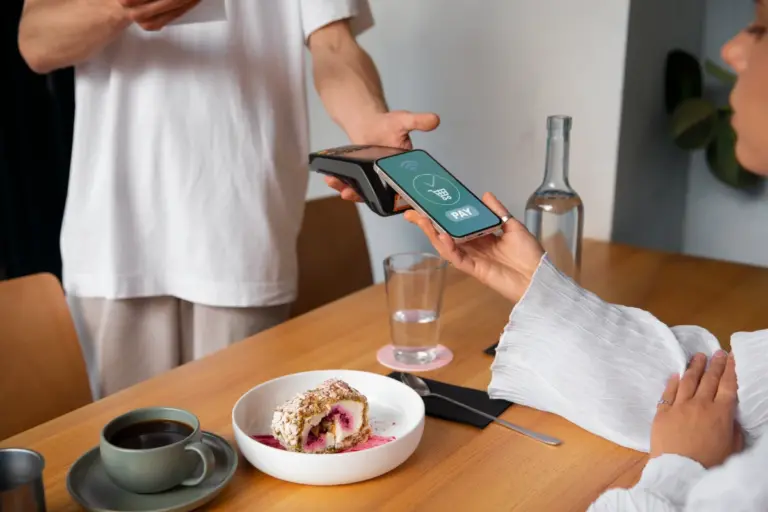Following the COVID-19 pandemic, the hospitality business underwent a dramatic shift. Hotels were obliged to adapt quickly to guarantee the safety and well-being of their customers and staff as travel limitations and health concerns transformed the way people interact with their environment.
Contactless technologies have developed as an important technique for eliminating physical touchpoints and the danger of viral transmission.
In this article, we will look at the growth of hotel operations, the obstacles encountered during the pandemic, and the critical role that software has played in facilitating contactless solutions for seamless post-pandemic hotel experiences.
Table of Contents
The Evolution of Hotel Operations
A. Traditional Hotel Operations
Hotel operations have always centered around human interactions between guests and staff at numerous touchpoints. Human interaction was a key component of the hotel experience, from check-in and room service orders through concierge assistance and payments.
However, the outbreak of the pandemic exposed the flaws in such approaches, forcing the sector to reconsider its operational paradigms.
B. Challenges Faced During the Pandemic
The hotel business faced unprecedented hurdles as a result of the pandemic. Because of social distancing regulations and hygiene concerns, it was critical to limit direct interaction between guests and workers.
Traditional operations encountered challenges in maintaining a safe atmosphere, resulting in lower occupancy rates and decreasing visitor confidence. To bridge the gap, hotels turned to technology-driven solutions.
Contactless Solutions: A New Approach
A. Mobile Check-in and Check-out
The use of mobile check-in and check-out processes was one of the first contactless solutions. Guests could completely avoid the front desk by completing these duties on their iPhones.
This reduced physical contact while simultaneously providing a more streamlined and efficient experience.
B. Digital Concierge Services
Digital concierge services have become an essential aspect of the contactless visitor experience. Dedicated smartphone apps provided guests with information about the hotel’s services, area activities, and eating alternatives.
These apps also made it easier to request amenities and services, resulting in a more personalized experience while decreasing the need for face-to-face interactions.
C. Touchless Payments and In-room Controls
Touchless payment methods have gained popularity, allowing guests to settle invoices and charges electronically rather than physically engaging with card terminals.
Lighting, temperature, and entertainment system controls were incorporated into smartphone apps, allowing guests to personalize their surroundings without touching shared surfaces.
The Role of Software in Enabling Contactless Operations
A. Property Management Systems (PMS)
Contactless operations were supported by sophisticated Property Management Systems. These systems linked diverse hotel services, allowing for seamless communication between departments and effective management of client preferences and demands.
B. Mobile Apps and User Interfaces
The major interface between guests and the hotel was intuitive and user-friendly smartphone apps. They provided a check-in platform, concierge services, and management over in-room amenities.
These apps were created to improve the convenience and engagement of guests.
C. Data Security and Privacy Considerations
As hotels adopted technology-driven solutions, protecting guest data and privacy became increasingly important.
To keep sensitive information safe, robust cybersecurity protections and strong data protection standards were put in place.
Case Studies: Successful Implementation of Contactless Solutions
A. Case Study 1: XYZ Hotel
Contactless technologies were easily integrated into the operations of XYZ Hotel Management, a luxury business in a large metropolitan area. The digital concierge app gave personalized recommendations, while mobile check-in and in-room controls increased visitor autonomy.
Positive guest feedback, increased operational efficiency, and a significant rise in guest loyalty occurred from the deployment.
B. Case Study 2: ABC Resort
Touchless payments and computerized menus were used by ABC Resort, a huge tourist resort. Guests might use their cellphones to place orders and pay bills, cutting wait times and congestion at dining establishments.
This method not only followed safety rules, but it also increased overall guest pleasure.
Overcoming Challenges and Resistance
While contactless technologies provided significant advantages, their adoption was not without difficulties. Some visitors, particularly those who were unfamiliar with technology, encountered a learning curve.
Hotel employees have to learn new processes and help visitors migrate to these contactless alternatives.
The Future of Contactless Hotel Operations
The pandemic has heralded a new era in hotel operations, with contactless solutions becoming an essential component of the visitor experience.
As technology advances, hotels will most certainly improve and polish their contactless solutions, resulting in more tailored and smooth encounters.
Conclusion
The COVID-19 epidemic has accelerated the adoption of contactless solutions in the hotel industry, altering the guest experience and influencing hotel operations in the future. From mobile apps to sophisticated property management systems, software has been critical in facilitating these seamless breakthroughs.
While there are still obstacles, the industry’s innovative spirit and devotion to client safety have paved the path for a more efficient, convenient, and personalized post-pandemic hospitality future.

